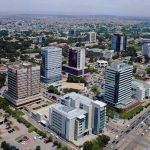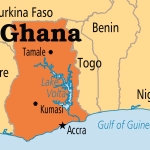Ghana is generally a friendly and stable country, but like any international move, planning and precautions are key. Below we cover everything from personal safety to housing, healthcare, and the step-by-step relocation process. This guide uses up-to-date information (as of 2025) from official sources (U.S. State Dept, Ghana Immigration Service, U.S. Embassy Ghana) and respected expat guides.
1. Personal Safety Overview
- General crime: Ghana’s U.S. State Department travel advisory rates the country “Exercise Increased Caution.” Violent crimes (armed robbery, carjacking, even occasional kidnappings) do occur. Thieves often target vehicles (especially at night) and crowded places. Street crime such as “snatch and grab” bag theft and pickpocketing is common in urban markets and traffic jams. Always lock your home/vehicle and keep valuables (wallets, passports) secure. Be especially vigilant at Kotoka Airport – use only official porters and watch your luggage.
- Safe neighborhoods: Expats typically live in Accra’s affluent areas (e.g. Airport Residential Area, Cantonments, East Legon) or in Kumasi and other regional capitals. These neighborhoods have gated compounds, international schools, supermarkets and private security. The city center and northern/western suburbs of Accra are considered relatively safe. By contrast, avoid isolated slums or border regions (Upper East/West, North East) due to higher crime and occasional unrest.
- Cultural awareness: Ghanaians are known for warmth and hospitality. Greet with a smile and a handshake; remember local customs (e.g. using titles and respecting elders). Public displays of affection are rare and best kept modest. Ghanaian law is conservative: for example, same-sex relations are illegal, so LGBT travelers should use discretion in public. Overall, friendly openness and respect will go far toward blending in.
- Emergency contacts: In any emergency, dial 191 (police), 193 (ambulance) or 194 (fire). If you need U.S. consular help, the U.S. Embassy in Accra can be reached at +233-30-274-1000 (after-hours emergency ext. 1570). It’s wise to enroll in the U.S. State Dept’s Smart Traveler Enrollment Program (STEP) to receive alerts and make it easier for the Embassy to locate you.
- Travel precautions: Solo travelers should avoid walking alone at night and stick to reputable transport (use ride-hailing apps like Bolt or pre-arranged taxis, rather than hailing random cabs). Female travelers should be especially careful in isolated areas after dark. Families with children should secure living quarters (gated homes are common in expat areas) and pick family-friendly neighborhoods near good schools. Retirees should plan for the tropical climate (stay hydrated, use sun protection) and arrange solid medical coverage before moving.
2. Healthcare and Insurance
- Healthcare system: Ghana’s public hospitals are improving but often overcrowded. Most expats use private clinics and hospitals in Accra or Kumasi for better care. Facilities such as Nyaho Medical Centre (Airport Area) and 37 Military Hospital have English-speaking staff and modern equipment. However, emergency response is limited (ambulance service only recently improved), so serious cases sometimes require medical evacuation.
- Insurance: Before your move, obtain a comprehensive international health insurance plan (many employers cover this). Local Ghanaian insurers (Apex, Acacia, ACE, Glico, Cosmopolitan, etc.) and international plans (Cigna, Allianz, MSH, etc.) are widely accepted. Expat guides strongly advise not relying on Ghana’s public National Health Insurance Scheme for expats. Always carry your insurance card and the U.S. Embassy’s list of doctors.
- Common health concerns: Malaria is a major risk across Ghana. Take a full course of anti-malarial medication (as prescribed by your doctor before travel) and use insect repellent/nightnets. Water and food safety: Avoid tap water and raw local ice; drink bottled or boiled/filtered water. Vaccinations: Yellow Fever vaccination is required for entry (be sure to get your certificate). The CDC also recommends Hepatitis A/B, typhoid, meningitis and rabies shots, plus routine immunizations (MMR, tetanus, etc.). Consult a travel clinic well before departure.
- Emergency care: In serious emergencies, Ghana’s 37 Military and Korle Bu Teaching Hospital in Accra are among the best public options. Nyaho Medical Centre and other private clinics are also very good for most care. In case of any emergency, dial 193 (ambulance) and notify the U.S. Embassy if evacuation is needed. Many expats subscribe to emergency medevac services (e.g. WARA).
3. Housing and Cost of Living
- Where to live: Accra is the expat hub, especially suburbs like Airport Residential Area, Cantonments, East Legon and Labone. These areas have malls, international restaurants, schools and private security. Kumasi, Ghana’s second-largest city, is popular for lower rents; neighborhoods like Ridge or Asokwa are expat-friendly. Coastal cities (Takoradi, Cape Coast) and Tamale (north) have smaller expat communities and even lower costs.
- Rent vs. Buy: Most newcomers rent. Rents in good Accra neighborhoods are high, often requiring 1–2 years’ rent upfront. For example, a 1‑bedroom apartment in central Accra runs roughly $500–$600/month, while a 3‑bedroom can be $1,100+. In Kumasi or outside the city center, rents can be much lower. Buying property is permitted, but note: all land is on leasehold. Foreigners may lease land (usually 50 years, renewable) and own the buildings. You’ll need legal advice and to register any purchase with local authorities.
- Budgeting: Expats typically spend 15,000–38,500 Ghana Cedi (~$1,000–$2,500) per month on housing, utilities, food and transport (higher end for families in Accra). Rent/utilities take the largest share. Electricity bills can be steep (electricity is prepaid), and internet/cable packages are moderate. Groceries are cheaper for local staples (rice, yams, fish), but imported foods can be very pricey. Dining out: local meals and street food are economical, whereas Western-style restaurants cost like back home. Taxis and ride-hailing are inexpensive for short trips; many expats hire drivers or buy cars (note high import taxes on vehicles).
- Useful resources: Housing websites and local realtors can help find rentals. Ask employers or colleagues about reputable neighborhoods. Consider living in a gated community or apartment complex with security. Always inspect a rental (or use a trusted agent) before signing, and clarify who pays for utilities.
4. Banking and Financial Logistics
- Opening an account: You can open a Ghanaian bank account after you arrive. Major banks (GCB Bank, Standard Chartered Ghana, Ecobank, etc.) have branches in all regions and English-language service. Required documents typically include your passport, work/residence permit and proof of address (a lease or utility bill). Some banks allow online applications (e.g. via email or mobile app), but in-branch identity verification is common. Expect to pay a small monthly fee (around GHS 20) for current accounts.
- ATMs and cards: Visa/Mastercard debit cards from Ghanaian banks work widely in ATMs; withdrawing from another bank’s ATM may cost ~GHS 10 per transaction. International ATM withdrawals incur about a 5% fee (plus a flat ~$25), so plan accordingly. Major banks also offer credit cards, but these are less common for newcomers. It’s wise to set up online/mobile banking (nearly all Ghanaian banks have apps).
- Mobile money: Ghana is largely a cash and mobile money economy. MTN Mobile Money (“MoMo”) and Vodafone Cash are ubiquitous – you can pay bills, send money, or buy airtime directly from your phone. Many expats use mobile wallets linked to their banks for daily transactions. Small shops and taxis often accept MoMo payments or QR codes.
- Transferring money: To move money between the U.S. and Ghana, reputable services (Wise, Western Union, Remitly, etc.) are best. Wise offers multi-currency accounts that can hold and convert Ghana Cedi at low cost. Try to use licensed channels rather than informal traders. Ghana also allows fairly liberal currency import/export (you can bring up to $10,000 USD without declaring). Always declare large sums in/out at customs to avoid confiscation.
- Local currency: The Ghanaian Cedi (GHS) is the local currency (₵ or GHS). Carry some cedis for small purchases. You can exchange major currencies at banks or official bureaus (“forex bureaus”) at fair rates. Ask your bank for advice on bringing foreign currency. Note that most prices in Ghana are quoted in cedi, except fuel which may be in USD.
5. Community and Lifestyle
- Expat community: There’s a growing expat scene in Accra and Kumasi. Look for Facebook groups (e.g. “Americans in Ghana”) or chapters of InterNations for social events and advice. Churches, business networks and NGOs often help newcomers connect. Once you arrive, joining a local club or volunteer group (e.g. Habitat for Humanity Ghana) can be a great way to meet people.
- Local customs: Ghana is friendly and family-oriented. Always greet people you meet; a simple “Good morning” goes far. Dress modestly, especially outside cities (long skirts/pants for women, avoid sleeveless shirts in public). Public behavior is conservative – loud arguments, swearing or public intoxication are frowned upon. When invited to someone’s home, it’s polite to bring a small gift (fruit or drinks) and remove your shoes at the door.
- Daily life: English is the official language, so communication is easy in business and schooling. Learning a few words of Twi (Ghana’s common local language) is appreciated. Weekend markets offer fresh produce, textiles and crafts – haggling is normal. Most restaurants and entertainment venues in expat areas cater to international tastes, but don’t miss Ghanaian staples like banku, fufu and jollof rice. Music, dance and festivals are a big part of life here (ask neighbors about local events).
- Schools: Ghanaian public schools use English, but most expat parents choose international schools. Top options in Accra include Ghana International School, Lincoln Community School and the International School of Accra – all follow U.S./British curricula. These schools have long waiting lists and high fees (comparable to American private school tuition). Register children early, and consider hiring a driver or carpool for school runs.
- Etiquette: Ghanaians are respectful of elders and authority. Always use both hands when giving or receiving something (especially money or a gift) as a sign of respect. Business meetings often start with small talk – don’t rush into the main topic. Tipping is not customary except for polite service (about 5–10% in restaurants).
6. Step-by-Step Relocation Plan
- Preparation & Research: Read travel advisories and country info (e.g. U.S. State Dept Ghana page). Check passport validity (must have ≥6 months beyond entry) and gather documents. Visit a travel clinic: get the Yellow Fever vaccine (required) and malaria prophylaxis prescription. Join expat forums to ask current residents questions.
- Visa & Entry: Apply for a Ghanaian visa in advance (tourist/business visa) or e-Visa via a Ghanaian embassy. U.S. citizens need a visa (single-entry valid 3 months, ~$60; multi-year visas also exist). Pack your yellow fever card for entry. Upon arrival, have copies of your passport and visa. Consider arriving at Kotoka Airport (Accra) during daytime for smoother immigration.
- Initial Setup: Book short-term housing (hotel or Airbnb) for the first few weeks. In that time, find a longer-term rental or home. Confirm utilities at your new home (electricity meter, water tank). Get a local mobile SIM (MTN or Vodafone) and pre-paid internet (many providers offer home Wi-Fi plans). You may need a simple utility payment to get an address (useful later for bank registration).
- Register for Residency: If you plan to stay >90 days, apply for a residency permit. The Ghana Immigration Service requires that foreigners living ≥90 days get a Ghana Card (national ID). Schedule an appointment at the National Identification Authority (NIA) to register (bring passport, visa, photos, etc.). The Ghana Card will then be needed for things like opening a bank account, getting a driver’s license, and applying for work permits.
- Bank Account & Money: Open a local bank account after you have your permit/Ghana Card. Prepare a passport photo, proof of address and your immigration documents. Visit a major branch (e.g. GCB Bank or StanChart) – staff speak English. Meanwhile, set up a digital wallet (Wise, PayPal, etc.) for transfers. If you need cash, withdraw cedis from ATMs in the city (using your U.S. card sparingly, as fees apply).
- Health & Education: Once settled, register with a local doctor and dentist. If you have children, tour international schools and apply as early as possible. If you work locally, confirm that your employer handles work permits. Always carry your health insurance details; there is no single social security system for expats (private insurance is advised).
- Shipping & Belongings: If you’re shipping household goods, hire a reputable international mover. Provide a detailed packing list to Ghana Customs. Note that Ghana bans used car imports and has duties on some appliances – check the latest customs rules. Pack essential items (medications, documents, a bit of cash in USD) in your carry-on.
- Daily Life: Open local utility accounts (electricity company ECG, water supplier, internet/TV). Learn the local transport: install ride-hailing apps, and as needed, buy or rent a car (remember, driving is on the right). Shop at markets for local goods and at supermarkets (e.g. Shoprite, Koala) for groceries. Engage with neighbors and coworkers to learn about practical tips (best mobile plans, grocery sources, etc.).
- Safety and Legal: Keep emergency numbers (police 191, ambulance 193) handy. Always lock your doors and use hotel safes for valuables. Follow local laws – for example, Ghana has strict penalties for drugs and “morality” laws (avoid any illegal behavior). Enroll children in schools promptly and carry their immunization records. If driving, get an International Driving Permit and arrange local vehicle insurance.
- Integration: Register with the U.S. Embassy (STEP program or via their website) once you have a permanent address. Attend community events (church groups, business forums, cultural festivals) to build friendships. Most importantly, stay adaptable: bureaucratic processes can be slow, and power outages (“dumsor”) or traffic jams may happen. Keeping a flexible, positive attitude will help you thrive in Ghana’s rich and welcoming environment.
Sources: U.S. State Department travel advisory; U.S. Embassy Accra; Ghana Immigration Service publications; expat resources (Expat Arrivals, ListingsProGH, etc.); Ghanaian official sites (Embassy of Ghana, Ghana Immigration) and travel health guides. Each section above cites the specific references used.



